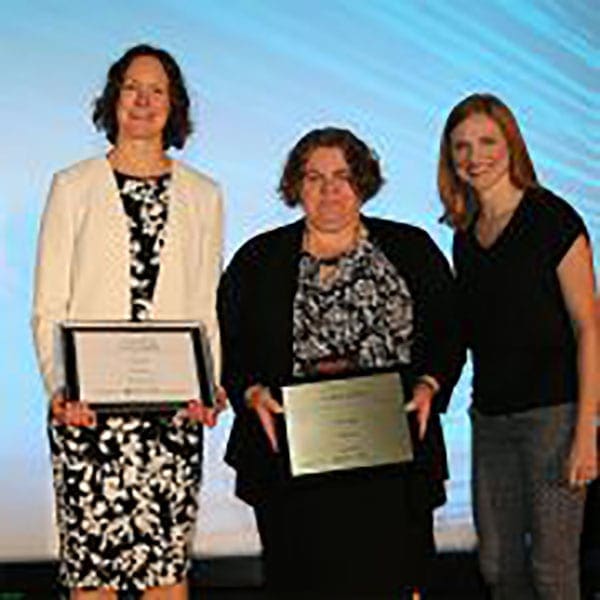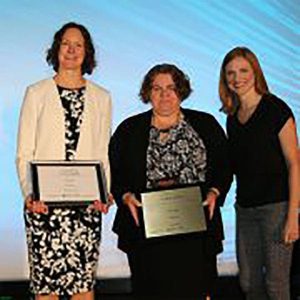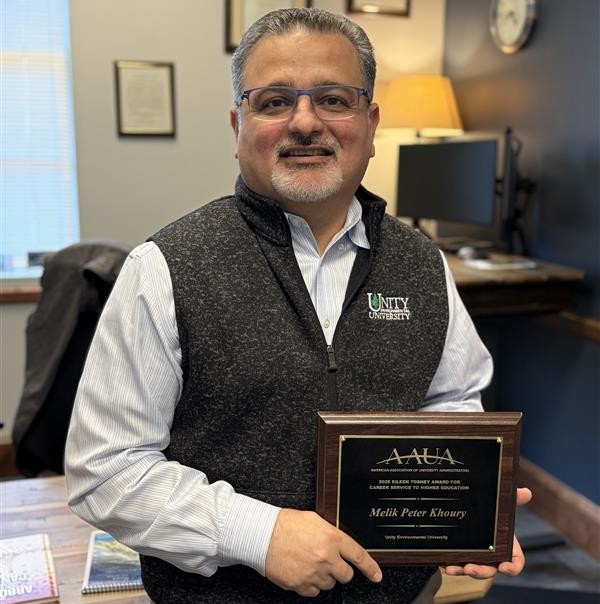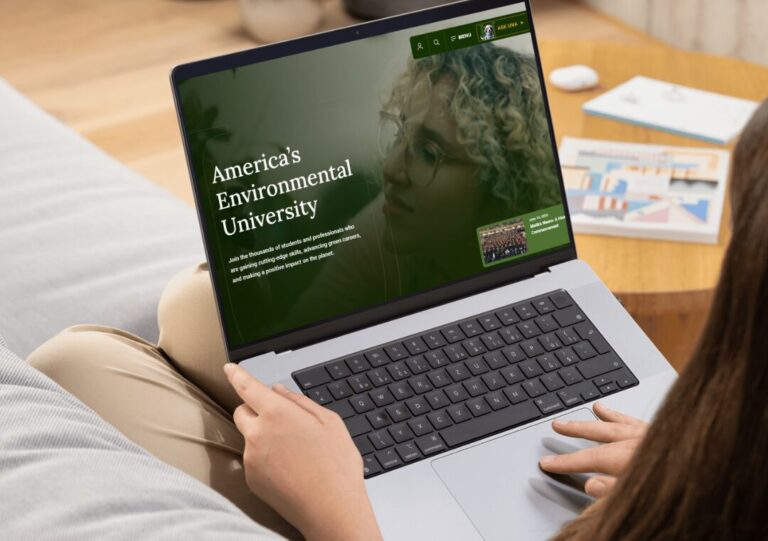
In recognition of “outstanding leadership in the promotion and implementation of  environmental sustainability,” Unity College has taken home the overall grand prize in the National Association of College and University Food Services Sustainability Awards this year, a stand-out among larger schools for a recent restructure within the dining and sustainability offices.
environmental sustainability,” Unity College has taken home the overall grand prize in the National Association of College and University Food Services Sustainability Awards this year, a stand-out among larger schools for a recent restructure within the dining and sustainability offices.
Up against finalists Duke University and University of Texas at Austin for the top prize, it was the structural combination of dining and sustainability teams at Unity College that designated the school as a trailblazer in sustainable dining. The departments were joined together to form a farm-to-cafeteria team under the direction of Unity’s Chief Sustainability Officer, a position created in the 2015-16 school year to inspire staff to generate new strategies for working together across multiple sustainability platforms.
“At Unity, we are challenging the food problem of the 21st century every day. Our dining services have become a living-learning laboratory for our students, showing them how, even at a commercial front, you can live the mission,” Unity College President Dr. Melik Peter Khoury said. “The functional approach of our recent restructure has really allowed this to happen. Merging Dining, Sustainability and McKay Farm into one unit that deals with the multitude of challenges facing college food services has truly allowed them to think differently and pave the way for other small higher educational institutions.”
One of the first major efforts of the Sustainability restructure was goal alignment: revised job descriptions now strongly reflect sustainability expectations, and larger department tasks and duties are dependent on collaboration. The partnership is already bearing results. In the winter of 2015, Dining and McKay Farm and Research Center worked to create a seed list for the farm to grow produce specifically requested by chefs. This past school year, Dining used over 3,600 lbs of produce from McKay — not counting all the un-saleable produce Dining has converted into products such as “McKay-chup,” hot sauce, herbed salt, and herbed butter.
With Dining reporting to Sustainability, the school recalibrated its definition of “local” food, re-writing its contract with its largest foodservice distributor so they are required to assist in electronic tracking of the local, as well as humane, ecological, and ethical food items, purchased and used by Unity College. The Sustainability Office also assisted in the design and production of icons to let diners know whether an item in the dining hall contains McKay ingredients, or is vegetarian, vegan or gluten-free.
With all the new changes, “wicked challenges” of the college food system took center stage in several class projects this year, with employees from dining, the farm, and sustainability all involved in advising student projects.This upward momentum for sustainable dining has also infiltrated the college’s growing catering arm, on its way to becoming the county’s go-to for eco-friendly catering.
“We’ve really focused on forming a team and setting strategic goals that required us to work together to accomplish them. Everyone here has a strong feeling of ownership over all the recent changes and a real sense of pride in our accomplishments,” Director of Dining Lorey Duprey said. “This restructure has really allowed us to lead, and as one of the most visible presences on campus, it feels great to do the name ‘America’s Environmental College’ proud.”
The grand prize-winner of the Sustainability Awards was chosen from the NACUFS gold recipients in the awards’ four categories. In June, Unity College brought home gold in the Sustainability Awards’ “waste management” category for minimizing waste sent to landfills and maximizing recycling efforts throughout dining services. The outcomes have been phenomenal: Unity College diverted 33.75 tons of organic waste from landfills in the months between August 2016 and May 2017.
NACUFS recognized the college’s efforts as a critical component in modern college and university food service: according to the U.S. Environmental Protection Agency, total food waste generation in the U.S. was estimated at 38.4 million tons in 2014. And while only a small portion of that — 8% — is attributable to educational institutions, hospitals and prisons, it is still a significant 3.07 million tons of food. A recycling assistance program in Massachusetts has actually estimated that a single residential college student in the U.S. generates 141.75 pounds of food waste each year.
“Dining Services has become a centerpiece of our unique organizational approach to sustainability,” Chief Sustainability Officer Jennifer deHart said. “While the successful organics program made us a stand out in the NACUFS Waste Management awards category, what set us apart in the overall sustainability standings was our distinctive integration of two standardly separate departments. I could not be prouder of my team.”
NACUFS Sustainability Awards support the triple bottom line philosophy, a method of evaluating operational performance by measuring financial success as well as environmental sustainability and social responsibility—also known as “people, planet, profit.” Institution members span across the U.S. and Canada, including 4-year and 2-year colleges; self-operated, contract and hybrid schools; and small and large campuses.



